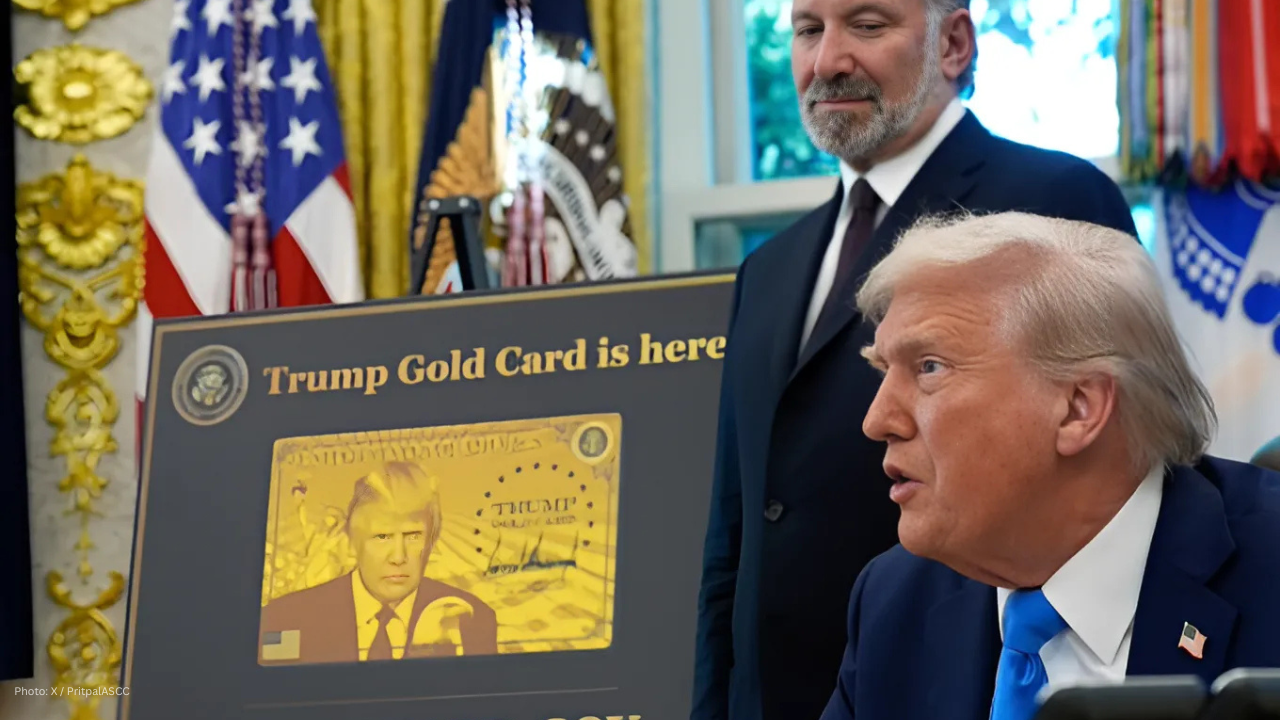
Post by : Naveen Mittal
In a significant shift in U.S. immigration policy, President Donald Trump has signed a proclamation introducing a $100,000 annual fee for companies applying for H-1B visas. This move is part of the administration's broader efforts to prioritize American workers and reduce the influx of foreign labor into the U.S. job market.
The H-1B visa program, which allows U.S. companies to employ foreign workers in specialty occupations requiring theoretical or technical expertise, has been a cornerstone for industries like technology, healthcare, and engineering. However, critics argue that the program has been exploited to replace American workers with cheaper foreign labor.
President Trump emphasized that the new fee structure is designed to ensure that only companies with a genuine need for high-skilled foreign workers will be able to afford the H-1B visa process. "We are making sure that American workers come first," Trump stated during the announcement.
The tech industry, which heavily relies on the H-1B visa program to fill positions that require specialized knowledge, is expected to be significantly impacted by this fee increase. Companies like Amazon, Microsoft, and Google, which are among the top recipients of H-1B visas, may face increased operational costs as a result of the new policy.
Smaller startups, which often operate on tight budgets, could find the new fee structure prohibitive, potentially limiting their ability to hire international talent. Industry experts have expressed concern that this could stifle innovation and growth within the tech sector.
The proclamation has raised questions about its legal standing, as immigration policy traditionally falls under the purview of Congress. Legal experts suggest that the new fee could face challenges in court, potentially delaying its implementation.
Economically, the policy could lead to a reduction in the number of H-1B visa applications, as companies may seek alternative ways to meet their staffing needs, such as investing in domestic workforce development or hiring from other countries with more favorable immigration policies.
This move is part of a series of immigration reforms introduced by the Trump administration, including proposals to overhaul the green card system and introduce new visa categories. While these changes aim to prioritize American workers and reduce illegal immigration, they have also sparked debates about their potential impact on the U.S. economy and international relations.
As the situation develops, businesses, legal experts, and policymakers will closely monitor the effects of the new H-1B visa fee and its implications for the future of immigration in the United States.










Kazakhstan Boosts Oil Supply as US Winter Storm Disrupts Production
Oil prices inch down as Kazakhstan's oilfield ramps up production, countered by severe disruptions f

Return of Officer's Remains in Gaza May Open Rafah Crossing
Israel confirms Ran Gvili's remains identification, paving the way for the Rafah border crossing's p

Border 2 Achieves ₹250 Crore Globally in Just 4 Days: Sunny Deol Shines
Sunny Deol's Border 2 crosses ₹250 crore in 4 days, marking a significant breakthrough in global box

Delay in Jana Nayagan Release as Madras HC Bars Censorship Clearance
The Madras High Court halts the approval of Jana Nayagan's censor certificate, postponing its releas

Tragedy Strikes as MV Trisha Kerstin 3 Accident Leaves 316 Rescued
The MV Trisha Kerstin 3 met an unfortunate fate near Jolo, with 316 passengers rescued. The governme

Aryna Sabalenka Advances to Semi-Finals, Targeting Another Grand Slam Title
Top seed Aryna Sabalenka triumphed over Jovic and now faces Gauff or Svitolina in the semi-finals as